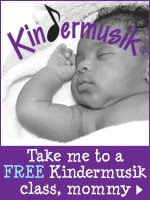If you have a child, you already have experienced the fact that children want to read a book, hear a story, or watch a movie over and over and over and over again. Until you are going crazy and want to hide it. But why? Not why you want to hide it! I already know that answer. But why do children want repetition?
We expose our children to a variety of experiences – things to see, hear, taste, touch, smell, people, new ways of moving or thinking – and new neural connections are formed in their brains. But not all of these connections will remain intact. It is only through repetition (or “practice”) that the neural connections become strengthened enough for skills to form.
Children love repetition because that’s the way they learn and remember new information best. And once your child has learned something, repetition is enjoyed because now your child can anticipate what comes next. How much more actively does your child participate in story time when she knows the ending to all the sentences? And how hilarious and clever does he think he is when he “catches” you substituting the wrong words in a favorite book?
When she can now sing along to a piece of music, repeat finger plays or recite chants, she can move on from “remembering” the words and tune, to practice using her voice and vocabulary words, and even creating something new – like extra words to the song.
It is sheer joy for a child to know they have mastered something, whether it’s building a block tower or putting together a puzzle. The child will repeat that skill to in order to continue to feel that joy of mastery. For instance, once a child has learned to walk, there is usually this period of time when all they want to do is walk and walk. Sometimes it is hard to get a new walker to stop and sit still long enough to eat at lunchtime, so we might put a little plate of finger foods on a low table that he could graze on as he circled through the kitchen again and again and again. We could call this “dine and dash”.
When something is successfully learned, (the neural connections are firmly established), a child receives a great deal of satisfaction, and he thinks it is “fun”. He is then driven to learn skills or information that is more complex than before.
So, I hope that you’ll remember that you are helping your child’s brain to grow, when playing Track #9 on your Kindermusik CD for the 7,219th time in a row!
















